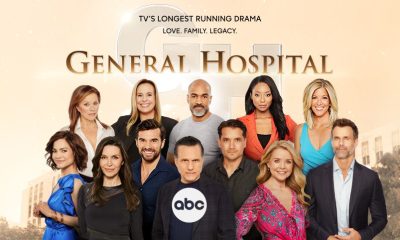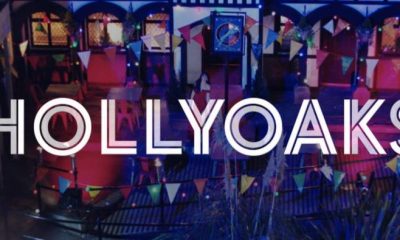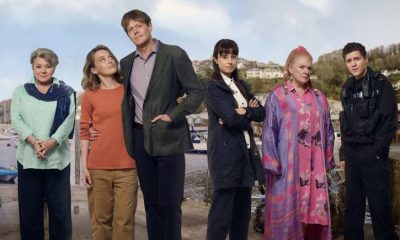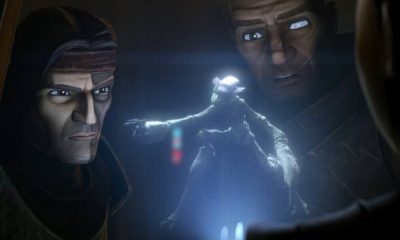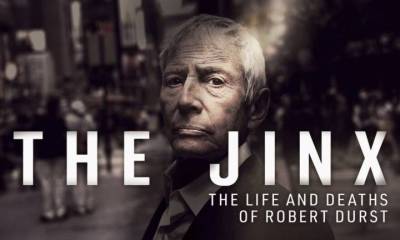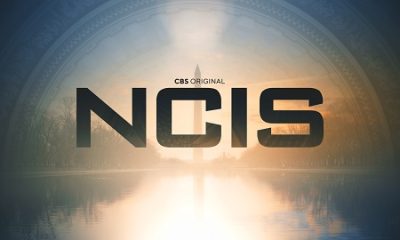Features
Classic 5’s: Movies Based on Books
Of course we could have made this a classic 500 but here are our pick for five of the best movies adapted from equally classic novels.
To Kill a Mockingbird (1962)
Harper Lee often said she set out to write nothing more than a simple little love story. But her 1960 Pulitzer Prize-winning novel has become one of the best coming-of-age stories in American literature.
With richness of detail and character description that is often difficult to transfer to film, To Kill a Mockingbird nonetheless became a great movie. That, in no small part, is because of the Oscar-winning performance of Gregory Peck.
As 1930s Macomb, Alabama, attorney Atticus Finch, Peck lends a quiet dignity to his role as one of the town’s most respected citizens. Finch finds himself at the center of controversy when he’s tapped to defend Tom Robinson (Brock Peters), a black man wrongly accused of raping a local white woman.
Told through the voice of Atticus’ precocious six-year-old daughter, Scout (Mary Badham), the story unfolds a great lesson in tolerance, the irrationality of racism and the painful reality that sometimes injustice prevails.
With a Pulitzer and several Oscars between them, Lee’s novel and director Robert Mulligan’s big-screen adaptation bear equal distinction in their respective mediums.
Author: Harper Lee
Screenplay: Harper Lee and Horton Foote
Grapes of Wrath (1940)
One of the true achievements a book-to-film adaptation can make is to preserve the best parts of the story by reducing the sometimes overwhelming details to a poetic bare minimum–without diminishing their emotional power.
Such is the case with John Ford’s classic Grapes of Wrath, which refined the best of Steinbeck’s sorrowful tale of the cross-country travels of the downtrodden Joad family. Upon his parole from prison, Tom Joad (Henry Fonda) returns to the dust-bowl remains of his family’s Oklahoma farm.
The impoverished Joads head for the promised land of California. But what the family finds upon its arrival is that the bounty of work they anticipated amounts to nothing more than slave labor for exploitative orchard farmers.
“They’re workin’ away our spirits, tryin’ to make us cringe and crawl, takin’ away our decency,” says Tom, as his family teeters on the verge of starvation.
Taking nothing away from Steinbeck’s work, it’s Fonda’s transcendent performance that pulls you right into the wagon with the Joads. It’s the cinematic promised land, right here on earth.
Author: John Steinbeck
Screenplay: Nunnally Johnson
Being There (1979)
It’s rumored that after the 1971 release of Kosinski’s novel, the author received a message from a man claiming to be “Chance the Gardener.”
When he returned the call, he found it had been from Peter Sellers, who said it was his career goal to make the book into a movie and star as the main character.
Sellers finally got his wish (the film was released less than a year before the actor died of a heart attack in London), portraying “Chauncey Gardener,” a slow-witted man who has spent his entire life happily locked away in the back garden of a big-city townhouse.
When his boss dies, Chance, armed only with what he has learned from watching television and working in the garden, is driven out of the only home he’s ever known. For the first time in his life, he’s forced to interact with real people.
This leads him into a serendipitous comedy of errors that endears him to a corporate tycoon, the American public and even a group of politicos who see Chance as their only hope of winning the next presidential election.
Kosinski’s screenplay captures the essence of Chance’s innocence, translating the largely interior character of the novel into a stunning big-screen visualization (with more than a little help from director Hal Ashby). And Sellers’ indelible personification of the gardener (which earned him an Oscar nomination) definitely grows on you.
Author: Jerzy Kosinski
Screenplay: Jerzy Kosinski
Gone with the Wind (1939)
One of the most expensive movies ever made, Gone with the Wind is also one of the most successful–and it’s based on one of the most popular novels ever written.
At its core a simple tale of bratty but beautiful Scarlett O’Hara (Vivien Leigh) and her quest to find love and save her home, GWTW remains timeless because of the universal appeal of its themes.
Scarlett’s fate is sealed when her blind determination to marry Ashley Wilkes (Leslie Howard)–who loves another woman–leads her foolishly to miss her one chance to be with that scoundrel Rhett Butler (Clark Gable), a man who understands her (and loves her anyway!).
And with nearly half the film’s running time devoted to the Civil War and its aftermath, GWTW is also a harrowing visual depiction of the ravages of war.
Both the Pulitzer-winning novel and the multi-Oscar-winning movie are long on length, yet even at 1,000-plus pages in hardcover and a four-hour running time in theaters, neither is too much.
Author: Margaret Mitchell
Screenplay: Sidney Howard
The Godfather (1972)
While dishing props to Puzo’s bestselling pulp page-turner, Coppola’s film is truly an epic.
A story that touches on almost every issue that could confront a family, particularly one as large and powerful (and corrupt) as the Corleones, Coppola’s Mafia masterpiece chronicles the ups and downs of one brood’s attempt to carve its niche in America.
Don Vito (Marlon Brando), his son Santino (James Caan) and, eventually, revered son Michael (Al Pacino), order and execute hideous acts of violence and depend upon the intimidation of those less powerful for their accumulation of riches.
Still, we like these bad-boy gangsters and even root for them as flawed heroes of a heinous sort. Perhaps it’s because in Puzo and Coppola’s thug life, no one is all good or all bad. Still, in the end, everyone gets exactly what they deserve.
It’s nothing personal, strictly business…but we’d choose to watch this movie again and again. Not that you’d have to put a gun to our heads to read Puzo’s richly detailed novel, either. It’s the ultimate “good read.” Either is an offer you can’t refuse. Do us this one small service: Read the book and
Author: Mario Puzo
Screenplay: Mario Puzo and Francis Coppola




